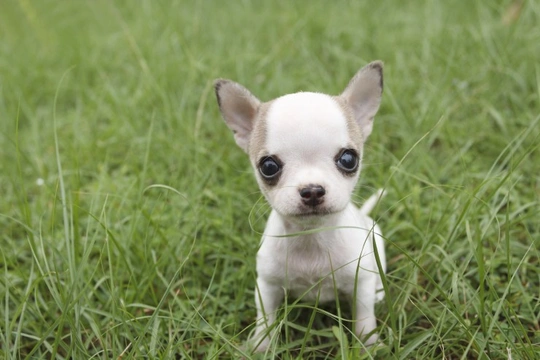
The special care considerations of owning a particularly small Chihuahua
The Chihuahua is the world’s smallest dog breed – and they are also really popular as pets, being the 3rd most popular dog type overall in the UK. Quite how tiny average dogs of the breed are can be quite variable – but even towards the top end of the Chihuahua size spectrum, most Chihuahuas are smaller than the average adult cat!
At the other end of the scale, falls the smallest of the small – the tiniest variants of what is already the world’s smallest dog breed, and they are also sometimes known as micro Chihuahuas or toy Chihuahuas – even though the Chihuahua breed as a whole falls within the toy dog group!
If you’ve decided that a Chihuahua is the right dog breed for you, you might be wondering if picking a very small example of the breed is the right choice.
There are certainly a number of advantages to owning a very small dog in terms of practicality – but when it comes to very tiny Chihuahuas, there are a number of other considerations and concerns that you need to bear in mind too.
In this article, we will examine the special care considerations of owning a very small Chihuahua, to help you to make the right decision. Read on to learn more.
How small is very small?
The average adult Chihuahua weighs between 1.8-2.7kg, and particularly small Chihuahuas are at the bottom end of that spectrum of possibly even a little lower.
However, when you’re buying a puppy, there’s no real way of knowing the size that they will grow to when adult – and so you might find that if you buy a puppy advertised as a toy Chihuahua, they will grow larger than you might expect. However, they will still of course be a very small dog, as this reflects the size range of the breed as a whole.
What you need to know about very small Chihuahuas
Because Chihuahuas as a whole are so small, they require a lot of care and attention in order to keep the happy, healthy, safe and well. All of the same care considerations that you need to bear in mind for the average Chihuahua apply to the tiniest Chihuahuas too, as well as various others – and we will look at the specific care considerations and potential challenges of tiny Chihuahuas next.
Very small Chihuahuas are very delicate and fragile
Very small Chihuahuas are not only petite, but they are also very finely boned which makes them rather fragile, and so a large part of the care of a tiny Chihuahua involves protecting them from harm and injury.
Playing with other larger dogs is likely to be off the menu because of this, which means that it can be hard to find opportunities to socialise tiny Chihuahuas whilst keeping them safe. Additionally, some larger dogs might nor recognise them as dogs at all and may even view them as potential prey.
You also need to be very careful not to accidentally step on or sit on your pet when at home, as their small size makes them easy to miss!
Getting the balance right when it comes to feeding can be a challenge
Providing the right amount of food and appropriate nutrition is vital for any dog, but when it comes to a very tiny Chihuahua, this can be a challenge. It is very easy to overfeed such as small dog, which leads to problems like obesity and all of the health complications that this can bring, like additional pressure on the dog’s small bones and joints.
Knowing how much and when to feed a tiny dog is a very fine balancing act and getting things wrong can lead to peaks and troughs in blood: sugar levels, and associated issues.
They may have problems moderating their own temperatures
The low weight and bodyfat levels of tiny Chihuahuas means that they will tend to feel the cold quite acutely, and can have problems moderating their own body temperatures. Providing a consistent, stable temperature at home is vital, and you will probably need to buy some coats and jumpers for your pet too!
Veterinary care and particularly, surgery can be a challenge
With a dog as tiny as a very small Chihuahua, everything needs to be done in miniature. Surgeries such as spay and neuter and any other clinical procedures can be hard to manage in such a small dog, which can be held in the palm of the hand.
This can increase the cost of providing veterinary care for your dog and mean that surgeries – and their recovery – can be complicated and require careful monitoring.
Breeding from a very small Chihuahua can be risky
There are risks involved in breeding from any dog, but particularly, from very small ones – especially those that often have a comparatively very large, domed head like the Chihuahua. This trait can mean the need for caesarean delivery and increases the risk of complications with pregnancy and delivery.
They tire out easily when exercising
All dogs need exercise, and the opportunity to walk on their own legs rather than being carried everywhere – even tiny Chihuahuas. However, a tiny Chihuahua will tire out from quite a short walk, as well as potentially having problems keeping up with the average person’s walking stride. Whilst a tiny Chihuahuas has an advantage in this respect in that they don’t need long walks, they do need your full attention when walking, which means moderating your pace and potentially, being prepared to carry your dog if they tire out along the way, or you need to pass through a busy area where your pet may be underfoot.



